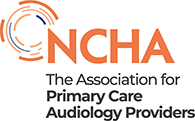08 January 2021
Member update – 8 January 2021
In this week’s update:
- Vaccination update
- National lockdown and clinical guidance
- Outcome of UK negotiations with the EU
- Sector news
The NCHA policy team has been working on your behalf to monitor vaccine development and rollout across the UK. Here is what you need to know at this stage.
Audiology teams are a priority group for Covid-19 vaccination
All UK governments are following JCVI guidance on prioritisation for the Covid-19 vaccination. So, all community audiology staff with patient-facing roles should be offered a vaccination along with all frontline healthcare workers. This applies equally to NHS and non-NHS funded audiological care.
Don’t panic if you have not yet been contacted
The MHRA approved the Pfizer/BioNTech vaccine on 2 December. Because of the vaccine’s complex storage requirements, the vaccination programme was unable to move at pace. The Oxford/AstraZeneca vaccine was only approved on 30 December and because it is easier to store and distribute we expect the programme to speed up over the next few weeks.
There are also other vaccines that might be approved, and this will help add capacity. For example, the Moderna vaccine was approved for use today and can be stored at -20C.
Expect some variation
How the programme is delivered differs slightly across the UK, but audiology teams remain a priority group in each UK country:
- England and Northern Ireland plan to use hospital hubs to vaccinate frontline healthcare workers, and this should include community audiology staff
- Scotland will be organising vaccinations through NHS Boards. You should be contacted directly about the programme in due course
- Wales is expected to use local public health teams to support coordination and rollout. We will update members once we have more information.
The Covid-19 vaccination programme is the most extensive vaccination programme the UK has ever performed. So, there are likely to be some unforeseen operational issues. For example, you might notice variation at a local level, prioritising higher risk groups within your practice team in the event of temporary supply or capacity issues. We will keep you up to date with any key developments.
Help your practice teams to prepare
If you are an employer, ensure your frontline teams have the information they need to make informed decisions. Read the advice the NHS has published on Appendix 1 section 5.
Here are links to official guidance which you might share with practice staff, giving them time to review and ask questions:
- Covid-19 vaccination information if you live in England
- Covid-19 vaccination information if you live in Northern Ireland
- Covid-19 vaccination information if you live in Scotland
- Covid-19 vaccination information if you live in Wales
Private and NHS audiology
The Covid-19 green book clarifies that frontline healthcare staff are in the same priority group for vaccination independently of how people pay for their care.
If you do not provide NHS care but deliver face-to-face patient care, you should expect the local vaccination programme to contact you.
At this stage, the NCHA policy team is establishing the process that vaccination programme leaders will use to ensure they capture all audiologists working in primary and community care settings without an NHS contract.
We will keep you up to date with developments over the next few weeks. In the meantime, if you have any questions, you can email us at [email protected].
National lockdown and clinical guidance
In our 5 January member update, we explained how England and Scotland had entered national lockdowns, but members could remain open while following official Covid-19 guidance. Updated regulations in England and Scotland now confirm audiology services can remain open.
The BSHAA and BAA have also confirmed that they do not plan to make significant changes to their Covid-19 guidance. Audiologists should continue to operate in level 4 – providing remote care where possible, face-to-face care for those with any hearing need, and triaging required for all those coming to their clinic.
Outcome of UK negotiations with the EU
The UK and the EU agreed a Trade and Cooperation Agreement on 24 December. The good news is most members won’t have to study the 1,246-page legally-worded agreement. Here is a quick way to get up to speed:
If you want to download a checklist of what might change for you, use the UK government checker tool.
Free movement of goods has ended. The trade deal means there will be no new tariffs on importing and exporting goods to the EU, but more customs paperwork is involved. In most cases, however, suppliers will manage this additional complexity on your behalf. The government has also produced a step-by-step guide to importing goods and exporting goods should you need this.
The free movement of persons has ended. However:
- The Common Travel Area (CTA) remains in place; this means British and Irish citizens can work in either country, including on a self-employed basis, without needing any permission from the authorities
- EU, EEA or Swiss citizens who were resident in the UK on or before 31 December 2020 have until 30 June 2021to apply to the EU Settlement Scheme – applications are free
- A new UK points-based immigration system applies to people arriving in the UK from 1 January 2021. This includes EU citizens moving to the UK to work.
The NCHA is a member of the CBI. Our policy team would recommend practice owners review the CBI Brexit bulletin, which gives you a quick overview of the new trading arrangements with the EU, including the current status on data transfers.
Scientists at Tel Aviv University have suggested it might be possible to deliver genetic material into the inner ear cells to prevent deafness. The study was supported by the European Research Council, National Institutes of Health, and the Israel Precision Medicine Partnership Program of the Israel Science Foundation. Read more.
A Stanford Medicine-led study has found a possible way to reduce the cytotoxic effect of aminoglycosides on hearing. It involves reformulating the drug in a way that is thought to minimise associated hearing loss. Learn more.
The University of Miami and Harvard Medical School researchers have suggested a modified hearing test might help detect autism at a very early age. Read more.
Finally, according to the University of Manchester and NIHR Manchester Biomedical Research Centre (BRC), parents often struggle with hearing aid management for their newborn babies in the UK. This has prompted researchers to call for a new approach for newborns with hearing loss. Learn more.

Press enquiries
Media enquiries should be directed to [email protected] or call 020 7298 5110.
We are happy to put you in touch with our expert policy advisers who can comment on a variety of issues.
You can also follow us on Twitter and LinkedIn.

 Your hearing and aural health
Your hearing and aural health  Commissioners and Policymakers
Commissioners and Policymakers  Member support and guidance
Member support and guidance News and views
News and views
 Hearing map
Hearing map
